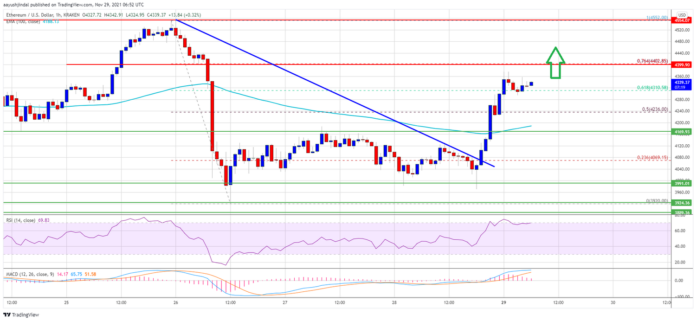Trading oil may be an interesting but hard challenge, inspired not only by marketplace fundamentals and technical assessment but also by the psychology of the customers themselves. Emotions play a vast role in the selection-making device of oil traders, impacting their perceptions, judgments, and actions in the marketplace. Understanding the psychology in the back of oil buying and selling can offer treasured insights into why buyers behave in the manner they do and how emotions can affect shopping for and selling outcomes. In this text, we will find out the psychology of trading oil, the emotions that strengthen buying and selling choices, and strategies for dealing with emotions correctly. Additionally, if you want to learn about investments, specifically those related to the oil sector, and companies that can teach them about this topic, you may click Go oil-profits.com/.
Emotions in Oil Trading
Emotions are an inherent part of human nature, and they regularly come into play while making shopping for and selling choices. In oil shopping for and selling, numerous feelings may affect investors’ behavior, together with:
Greed: The choice for profits can energy consumers to take immoderate dangers and make impulsive picks in pursuit of higher returns. Greed can lead buyers to disregard warning signs and symptoms, chase trends, and over-leverage their positions, increasing the chance of losses.
Fear: Fear of loss is an effective emotion that could paralyze traders and prevent them from taking necessary dangers. Fear can encourage traders to hesitate, 2nd-salary their picks, and omit out on worthwhile possibilities.
Hope: Hope is a double-edged sword in oil buying and selling. While optimism can encourage investors to persevere via disturbing conditions and live centered on their dreams, excessive hope can cloud judgment and cause unrealistic expectations.
Overconfidence: Overconfidence can lead investors to overestimate their abilities and underestimate the dangers concerned with oil shopping for and promoting. Overconfident traders may also take reckless dangers, ignore risk management standards, and emerge complacent in their buying and promoting techniques.
The Impact of Emotions on Trading Decisions
Emotions can notably affect shopping for and selling selections, frequently leading to irrational conduct and suboptimal outcomes. Some not-unusual tactics wherein emotions can affect trading decisions consist of:
Biased Decision-Making: Emotions can cloud judgment and lead traders to make biased alternatives primarily based on subjective beliefs in the area of objective evaluation. For instance, affirmation bias can cause traders to look for information that confirms their present-day perspectives while ignoring contradictory evidence.
Impulsive Trading: Emotions, which include greed and worry, can cause impulsive buying and selling picks, causing consumers to shop for or promote assets primarily based on emotional reactions rather than rational assessment.
Loss Aversion: Fear of loss can cause buyers to turn out to be overly hazard-averse and keep away from taking critical risks to obtain their buying and promoting desires. Traders who are loss-averse might also hold on to dropping positions in the hope that they’ll recover, leading to comparable losses and overlooked possibilities.
Herding Behavior: Emotions can also contribute to herding behavior within the market, in which shoppers observe the organization in preference to making independent choices.
Strategies for managing emotions
While it’s now not viable to genuinely remove feelings from the trading process, there are techniques buyers can use to manipulate their emotions effectively and make more rational buying and selling choices:
Develop a Trading Plan: Having a well-described trading plan can help buyers stay disciplined and focused on their goals. A trading plan should define clean get-in and move-out criteria, risk manipulation regulations, and strategies for managing precise marketplace situations.
Practice Patience and Discipline: Patience and discipline are crucial tendencies for success in trading. Traders need to avoid making impulsive selections primarily based on emotions and stick with their buying and selling plan, even when confronted with uncertainty or adversity.
Set realistic goals: Setting realistic and conceivable dreams can help buyers keep their angle and avoid becoming overly emotional about their shopping and selling outcomes.
Practice Self-Awareness: Developing self-consciousness is essential for recognizing and dealing with emotions in buying and selling. Traders have to regularly assess their emotional state and take steps to mitigate horrible emotions consisting as fear and greed before they’ve had an impact on buying and selling selections.
Utilize Risk Management Techniques: Effective danger control is important for controlling emotions and mitigating capability losses in shopping and selling. Traders should use strategies that include position sizing, prevent-loss orders, and diversification to shield their capital and manipulate chance exposure.
Conclusion
The psychology of buying and selling oil is a complex and fascinating difficulty, stimulated by the aid of a myriad of feelings and cognitive biases. Understanding the function of feelings in buying and promoting can help buyers make more rational choices, control hazards efficiently, and achieve prolonged-term success within the marketplace. By growing self-interest, training in the field, and enforcing sound risk control techniques, investors can navigate the ups and downs of oil buying and selling with self-notion and resilience. Ultimately, gaining knowledge of the psychology of buying and selling is as important as gaining knowledge.
Disclaimer: This content is meant to inform and should not be considered financial advice. The views expressed in this article may include the author’s personal opinions and do not represent Times Tabloid’s opinion. Readers are urged to do in-depth research before making any investment decisions. Any action taken by the reader is strictly at their own risk. Times Tabloid is not responsible for any financial losses.



